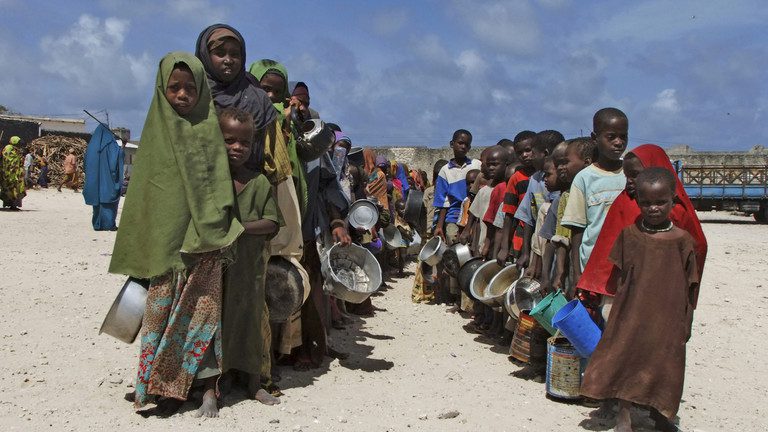Headlines
Anger is mounting in Nigeria as more and more people die while desperately seeking palliatives to alleviate hunger

In Nigeria, a dire humanitarian crisis has unfolded, exacerbating the already profound struggles of its populace.
Read Also: Palliatives are shared by the Kano governor with hospital patients
As the nation grapples with widespread hunger, compounded by the economic repercussions of the COVID-19 pandemic, reports have surfaced of increasing fatalities among those desperately seeking palliatives – essential aid meant to alleviate their suffering.
The scenes across Nigeria are heartbreaking. Families, already on the brink of starvation, are driven to extreme measures in search of sustenance.
With basic necessities becoming luxuries for many, the quest for palliatives has turned into a matter of life and death.
In the midst of this turmoil, anger simmers. The failure of government authorities to effectively distribute aid has stoked resentment among the populace.
Many Nigerians feel abandoned by those entrusted with their welfare, left to fend for themselves in the face of overwhelming adversity.
The situation is further compounded by allegations of corruption and mismanagement, with reports emerging of aid meant for the most vulnerable being siphoned off by corrupt officials. Such revelations have only served to deepen the sense of betrayal felt by those struggling to survive.
The consequences of this crisis are devastating. Lives are being needlessly lost as hunger tightens its grip on the nation.
Behind each statistic lies a tragic tale of suffering and despair – a family torn apart by hunger, a community ravaged by neglect.
Yet amidst the despair, there is also resilience. Across Nigeria, grassroots efforts are emerging to fill the void left by government inadequacy.
Civil society organizations, religious groups, and ordinary citizens are coming together to provide support to those in need, demonstrating the power of community in the face of adversity.
But these efforts alone are not enough to stem the tide of hunger and prevent further loss of life. Urgent action is needed to address the root causes of the crisis and ensure that aid reaches those who need it most.
Accountability must be demanded from those responsible for the distribution of palliatives, and measures put in place to prevent further exploitation of the vulnerable.
Moreover, long-term solutions are essential to break the cycle of poverty and food insecurity in Nigeria.
Investments in agriculture, infrastructure, and social welfare programs are crucial to building resilience and empowering communities to withstand future shocks.
As the world watches, the plight of Nigerians serves as a stark reminder of the urgent need for global solidarity in the fight against hunger.
In a world of plenty, no one should have to die in search of palliatives. It is time for action – time to stand together and say, “Enough is enough.” Only then can we hope to build a future where hunger is nothing more than a distant memory.
